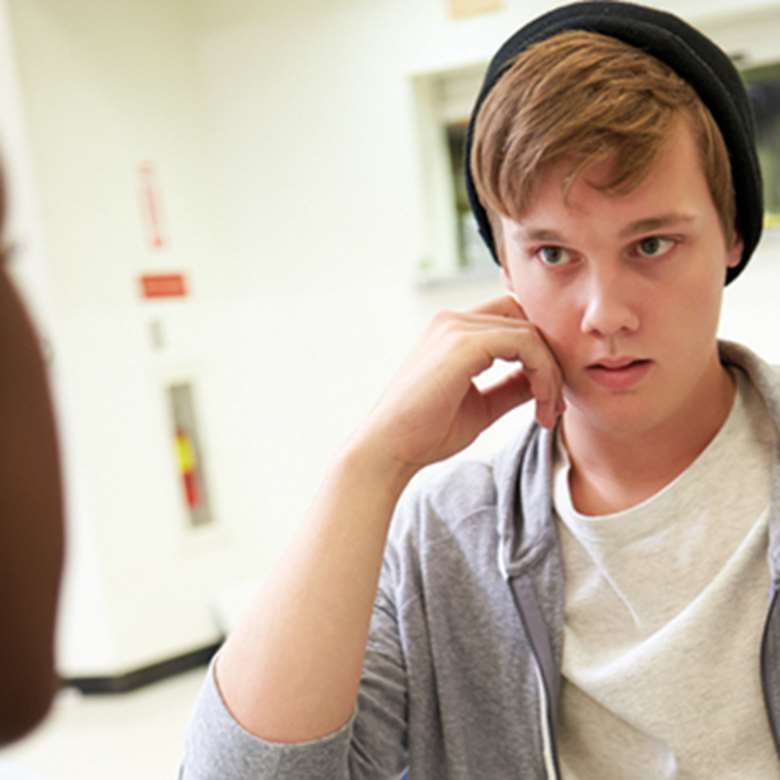Empowering children's social workers to identify underlying mental health issues
Sponsored
Annette Rawstrone
Thursday, May 23, 2019
When a young person is displaying complex mental health difficulties, the waiting list to access specialist mental health services can be more than six months - and sometimes several years - with the family near crisis point.

Sadly, that's an all too familiar situation for social workers - but one that a new online diagnostic service is aiming to address by making reliable, quick and cost-effective assessments directly available to social care professionals.
The Development and Wellbeing Assessment (DAWBA) is a globally recognised screening tool for identifying a broad range of developmental disorders and psychiatric conditions affecting children and young people. It allows for a young person to be rapidly assessed and was used in the NHS Mental Health of Children and Young People in England survey in 2017.
The tool is also recommended by experts on mental health in looked-after children. Now, after an 18-month trial, the service is being made available by SWB Global to social care workers and families to help address the deep-rooted issues behind mental health difficulties and developmental disorders.
"Social workers are often faced with complex situations and have to make life-changing decisions for children and young people without the tools they need to determine if there are underlying disorders contributing to a child or young person's needs," explains Bill Colley, consultant at SWB Global.
"The DAWBA provides a fast and reliable profile to aid decision making and can help to avert expensive and traumatic placement breakdowns, or the necessity for a child to be taken into the care system in the first place."
The assessment can identify a range of conditions including autism, ADHD and attachment difficulties, he adds.
Each assessment with SWB Global costs £200 to £250. It consists of an online interview combining a mix of structured questions, such as ‘Does he worry?', and open-ended questions, for example ‘Please describe in your own words what it is that he worries about?'
Information for the assessment is collected from up to three sources:
- parent of the two- to 17-year-old
- the child or young person
- teacher or social worker
The online questionnaires are supplied by Youthinmind. They are intuitive so respondents are not asked irrelevant questions and take less than an hour to complete. Responses are then assessed and a draft report written. SWB Global provides assistance during the process to ensure that the open-text answers are sufficiently detailed and then offers a consultation to discuss the findings of the report and offer recommendations.
It is a completely confidential service - personal details are limited to forename, gender and age - and the process is fast with a maximum turnaround of five working days. Through trials, SWB Global has found the assessment is ‘extraordinarily effective' at unpicking complex factors and making sense of how and why a young person is struggling.
Decision makers can then be informed by clinically proven methodologies for their planning rather than superficial judgements. It can also be used for tracking long-term wellbeing.
"Knowledge is fundamental," says Colley. "DAWBA enables you to put support services in place before any formal diagnosis takes place. This will change the quality of that young person's life very quickly." He says that a delay in providing targeted treatment can lead to secondary mental health difficulties and the financial implications of placement breakdown or further diagnosis.
SWB also offers enhanced support in the completion of DAWBA assessments, understanding reports and any follow-up assessments that may be indicated.
The computer-administered system has been found to bring many benefits, not only relating to cost. "One of the great strengths of the DAWBA is that young people appear to find it more accessible as an assessment tool than conventional clinical interviews and provide comprehensive information on how they themselves feel about their own mental health," says Colley.
He recalls a teenage girl who had disclosed in the assessment that she had struggled for several years with gender dysphoria but had not spoken to her parents or clinical psychologist about it.
By offering the DAWBA service to families and social care professionals, Colley believes it is taking the "ownership" of mental health from clinicians and placing it at the heart of the community.
"What social workers want in crisis situations is fast, reliable assessments. What they often get is long wait times and rejected referrals," he says. "The use of the DAWBA at an early stage can guide social workers in determining the types of supports that they or others may be able to put in place to prevent family break-down, disengagement from education, and offending or high-risk behaviours.'
- For further information or to book a free consultation go to: https://swbglobal.org/ or email: swbglobal@btinternet.com




